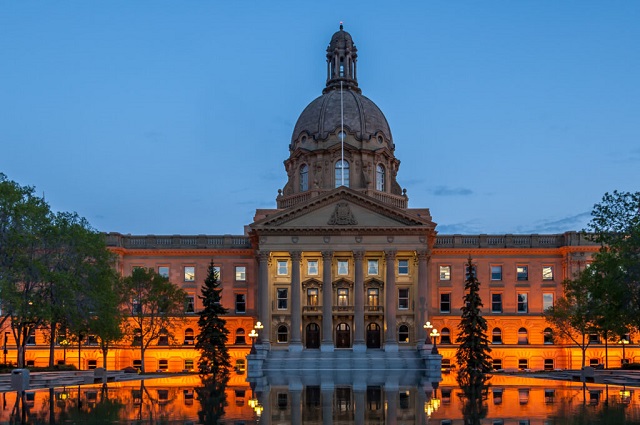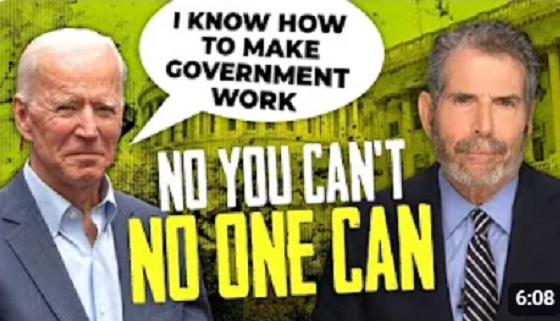Alberta
Alberta bans fires in provincial parks, protected areas, hiring 200 new firefighters, increasing fines & more

The Albert government is taking a number of steps to reduce the risk of spring wildfires while protecting municipalities.
Alberta Wildfire is hiring 200 additional firefighters, invoking a fire ban, implementing off-highway vehicle (OHV) restrictions, increasing fine violations and funding $20 million more in community FireSmart initiatives, all to prepare for the upcoming wildfire season during COVID-19.
Alberta Parks is also instituting a fire ban in all provincial parks and protected areas.
These early preparedness measures will ensure the province can effectively focus resources where they are needed most in the event of multiple emergencies happening at the same time.
Typically, the wildfire hazard is highest in Alberta in late April through May, when fuel like trees and grasses have extremely low moisture content after the snow has melted.

A massive wildfire swept through parts of Fort McMurray in May 2016, leading to the evacuation of the population and billions in damages. Photo Courtesy/Government of Alberta
More than a million acres burned last year and 71 per cent of wildfires were human-caused and entirely preventable. With provincial resources currently stretched due to COVID-19, these preventative measures will better equip Alberta’s response to spring wildfires this year.
“Albertans are tough and we’re all doing what we can to keep each other safe during COVID-19. With Alberta’s wildfire season matching with the expected peak of COVID-19, we have to take extra precautions to ensure our response efforts are well-funded and planned out. This spring, we may find ourselves facing multiple disasters at once. With all these measures, we will be prepared.” Devin Dreeshen, Minister of Agriculture and Forestry
Increased firefighting resources
An additional $5 million investment is being made to hire and train 200 high-quality firefighters to assist with the provincial wildfire suppression this season.

The fire ban and OHV restriction are temporary measures, which will remain in place only as long as required to combat the wildfire risk.
More than 800 seasonal firefighters will join 370 year-round staff at Alberta Wildfire. These resources are hired at one of the 10 Forest Areas, and are moved throughout the Forest Protection Area as required.
Fire ban and OHV restriction
A fire ban in the Forest Protection Area, provincial parks and protected areas, as well as a recreational OHV ban on Crown land in the Forest Protection Area, will come into effect April 15.
Alberta’s Forest Protection Area covers almost 60 per cent of Alberta, most of the northern half of the province and the western border, excluding federal parks.
The government recognizes that many Albertans use OHVs and respects this valid activity. At the same time, the government must take into account limitations and manage risk due to the COVID-19 pandemic. Hot mufflers can potentially start wildfires.
The fire ban and OHV restriction are temporary measures, which will remain in place only as long as required to combat the wildfire risk. Measures may later be adjusted to take into account the needs of specific regions.
All fire permits will be suspended in this area, and landowners are responsible for ensuring any holdover fires are extinguished by this time.
Indigenous people may use OHVs on public land for traditional purposes. Use of OHVs on private lands, for industrial use (for example forestry, agriculture and energy) and by emergency responders is also permitted.

A recreational off-highway vehicle (OHV) ban on Crown land in the Forest Protection These OHV restrictions are only temporary measures.
Fines are being doubled from $300 to $600 for non-compliance with a fire ban and from $600 to $1,200 for non-compliance with an OHV restriction. With 71 per cent of last year’s wildfires started by people, these fine increases reflect the seriousness of the preventative measure Albertans must take to prevent wildfires.
Individuals found contravening a fire ban or OHV restriction will be subject to increased fines, starting April 15, and could be held liable for all costs associated with fighting a wildfire. Last year, more than $600 million was spent fighting wildfires in Alberta.
These fines are in addition to the existing penalties for arson under the Criminal Code.
“Our province is taking steps to prepare for wildfires and other hazards this spring and summer by increasing our emergency response capacity. This means that while we continue to respond to the COVID-19 pandemic, we will also be ready to respond to other emergencies as they may arise.” Kaycee Madu, Minister of Municipal Affairs
Increased FireSmart funding
FireSmart will receive a funding boost of up to $20 million to support vegetation management in the province. The department will work with municipalities to ensure these funds are used this fiscal year.
FireSmart helps to reduce the wildfire risk to Albertans, their homes and communities. The FireSmart program includes grants to support the most at-risk communities in Alberta, including Indigenous communities.
This additional funding will help mitigate wildfire damages and losses in more Alberta communities by creating FireSmart zones around at-risk communities to reduce wildfire hazards.
To increase response capacity and prepare for multiple and concurrent disasters, such as wildfires and floods, the Provincial Operations Centre has been reinforced by the creation of a Pandemic Response Planning Team. This team will help coordinate government’s medium and long-term response to the COVID-19 pandemic.
Quick facts
- For more information on wildfires, download the Alberta Wildfire app.
- Up-to-date information on fire restrictions, fire bans, OHV restrictions and general wildfire information is available at albertafirebans.ca or by calling 1-866-FYI-FIRE (1-866-394-3473).
- To report a wildfire, call 310-FIRE (310-3473) toll-free, from anywhere in Alberta.
- Most new seasonal staff will be on-the-ground firefighters, with wages between $22 and $28 per hour.
- Fire bans and OHV restrictions have proven to be effective prevention tools in reducing the number of human-caused wildfires.
- Anyone found to be non-compliant with a fire ban or OHV restriction may also have to go to court and may receive a fine up to $100,000. Anyone found to be the cause of a wildfire may be liable for the costs associated with extinguishing the fire.
- FireSmart is a program that requires cooperation of all people living, working and playing in the forest.
Alberta
Official statement from Premier Danielle Smith and Energy Minister Brian Jean on the start-up of the Trans Mountain Pipeline

Alberta
Protecting the right to vote for Canadian citizens: Minister McIver

Minister of Municipal Affairs Ric McIver issued the following statement in response to Calgary City Council’s vote to extend the right to vote to permanent residents:
“Yesterday, Calgary city council passed a motion advocating for permanent residents to be extended the right to vote in civic elections. Alberta’s government has been clear since the beginning: only Canadian citizens are able to vote in civic elections. That will not be changing.
“The Canadian Charter of Rights and Freedoms affirms the right of every Canadian citizen to vote and to run as a candidate. This right extends to voters in municipal, provincial and federal elections.
“Protecting our democracy is of the utmost importance. Our provincial election legislation, like the Local Authorities Elections Act, has also been clear since its inception that voting is a right of Canadian citizens.
“Alberta’s government is also ensuring that voting is accessible for more Albertans. The Municipal Affairs Statutes Amendment Act proposes to enable special ballot access for any voter who requests it, without having to provide any specific reason such as physical disability, absence from the municipality or working for the municipal election. The ministries of Seniors, Community and Social Services and Service Alberta and Red Tape Reduction are also making it easier for individuals to obtain the identification Albertans need for a variety of services, including the ability to cast a ballot.
“Our government will continue to protect the integrity of our elections and make sure voting is accessible for all Albertans who are Canadian citizens.”
-

 Education21 hours ago
Education21 hours agoSupport a young reader through the Tim Hortons Smile Cookie campaign
-

 Alberta2 days ago
Alberta2 days agoAlberta’s vision for passenger rail
-

 John Stossel2 days ago
John Stossel2 days agoWhy Biden’s Just Wrong: NO ONE “Knows How to Make Government Work.”
-

 Education2 days ago
Education2 days agoRebels earn Jim Donlevy Memorial Trophy as WHL Scholastic Team of the Year
-

 RCMP2 days ago
RCMP2 days agoRed Deer RCMP arrest two individuals following ramming of police vehicle
-

 Alberta2 days ago
Alberta2 days agoThree Calgary massage parlours linked to human trafficking investigation
-

 Business21 hours ago
Business21 hours agoWEF panelist suggests COVID response accustomed people to the idea of CBDCs
-

 COVID-192 days ago
COVID-192 days agoStates move to oppose WHO’s ‘pandemic treaty,’ assert states’ rights







